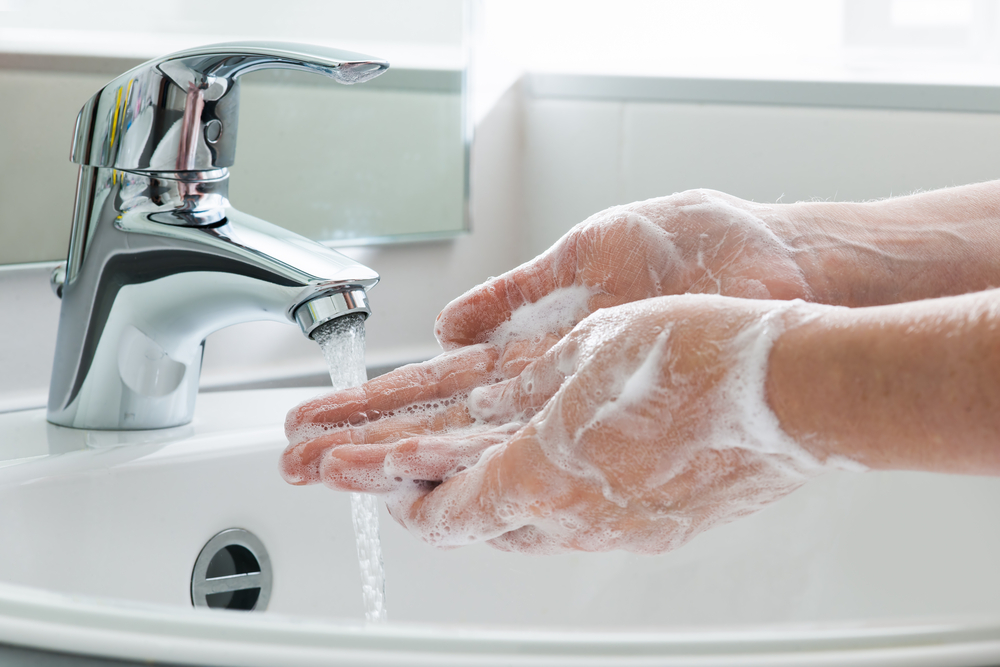Defra has issued advice to the waste sector and councils about people self-isolating because of the coronavirus and how to deal with their household waste. [UPDATED 15.30pm 11 March 2020]
Chief amongst the concerns of the government is preventing the spread of coronavirus (Covid-19). Advice had already been issued by Public Health England on 26 February but the Defra advice – which is derived from PHE – has a new emphasis on storing the waste for 72 hours and was also published by PHE this afternoon.
It appears Defra and Public Health England have changed tack. While previously waste generated by those who test positive for the virus had to be collected as category B waste, it now appears safe to put it in with normal household waste after the 72 hour period.
Advice
The advice issued by Defra this week states: “Waste from possible cases and cleaning of areas where possible cases have been (including disposable cloths, tissues) should be put in a plastic rubbish bag and tied when full.
“The plastic bag should then be placed in a second bin bag and tied. It should be put in a suitable and secure place and marked for storage until the individual’s test results are known.
“Waste should NOT be left unsupervised awaiting collection. You should NOT put your waste in communal waste areas until negative test results are known or the waste has been stored for at least 72 hours.
“If the individual test is negative, this can be put in with the normal waste. If the individual tests positive, then store it for at least 72 hours and put in with the normal waste.”
The Defra advice continues: “If storage for at least 72 hours is not appropriate, arrange for collection as a Category B infectious waste either by your local waste collection authority if they currently collect your waste or otherwise by a specialist clinical waste contractor. They will supply you with orange clinical waste bags for you to place your bags into so the waste can be sent for appropriate treatment.”
Category B
On 26 February, Public Health England had said: “If the individual tests positive, then place bags in orange or yellow container or bags and arrange disposal as Category B waste.” (see letsrecycle.com story)
In light of the Defra/PHE advice, this category B approach now appears unnecessary if the waste has been stored for 72 hours. The government guidance can be seen here and was updated today (11 March) with the details of the 72 hours storage period.
The initial 26 February advice regarding waste disposal specified all waste, including used tissues and masks, which has been in contact with any individual who suspects they may have contracted the virus, should be put in a plastic rubbish bag and tied when full. It said the plastic bag should then be placed in a second bin bag and tied. It should be put in a safe place and marked for storage until the result is available. And, PHE added on 26 February, if the individual tests negative, the waste can be put in the normal waste and, that if the individual tests positive, then the above advice must be followed.
Plans
Waste management companies are already reassuring employees and the public at large that plans are in place to protect people from infection. And, the sector is understood also to be preparing contingency plans to cope if employees are affected.
Biffa, for example, has issued a series of instructions to its employees on how to prevent the spread of the coronavirus. The company reminded employees to frequently wash their hands using alcohol-based hand rub or soap and water.
When coughing and sneezing, they have been told to cover their mouth and nose with a flexed elbow or tissue, then throw the tissue away immediately and wash their hands.
Those who have a fever or a cough, feel unwell or suspect they may have the infection have been asked to contact the NHS services immediately and avoid contact with others until advised on what to do next.
Employees have also been reminded to follow the standard protocols when dealing with potentially contaminated waste. These instructions – or a variation on them – have been echoed by many other companies, including Suez and Viridor.
The post ‘Double bag coronavirus waste’, says Defra appeared first on letsrecycle.com.
Source: letsrecycle.com Waste Managment




